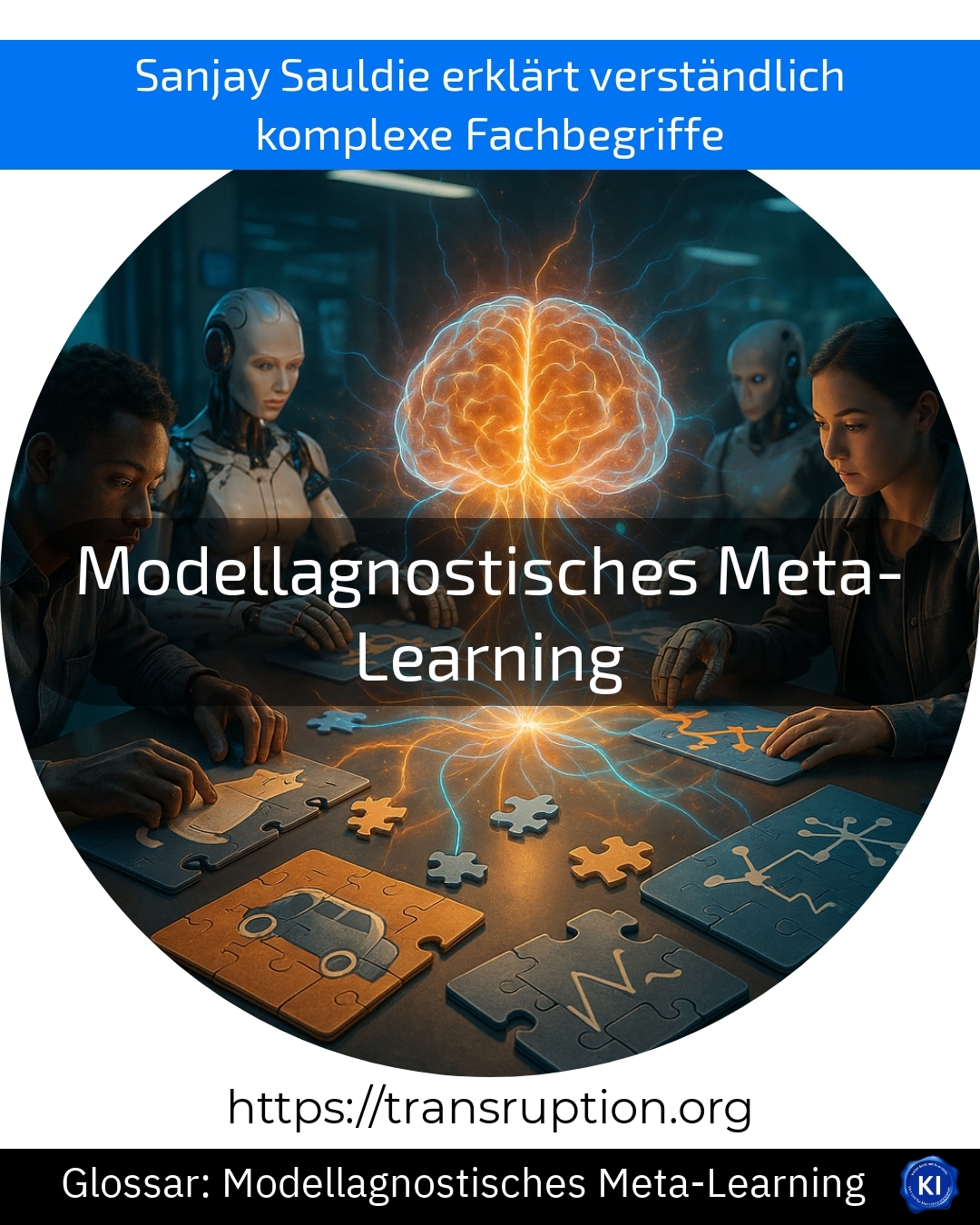The term "model-agnostic meta-learning" originates from the fields of artificial intelligence, automation and big data. It involves training machines or programmes to learn new tasks particularly quickly and effectively - regardless of which model is used in the background.
What makes it special: This learning is "model-agnostic". This means that the ability to learn does not depend on a specific algorithm or learning model. Instead of starting from scratch every time, a system can use model-agnostic meta-learning to utilise previous experience and adapt rapidly to new requirements.
A simple example: Imagine you are working with an intelligent production system. Today, it has to assemble a completely new product variant whose blueprint it has never seen before. Thanks to model-agnostic meta-learning, the machine can learn how to master the new task with just a few trial runs - without major reprogramming or time-consuming relearning.
This makes model-agnostic meta-learning particularly valuable wherever requirements change frequently, as the systems remain flexible and adaptable.















